Tuesday 19 February 2019
No Images? Click here

TISPOL welcomes new ETSC report on speeding and the vital role of
in-vehicle technology
in-vehicle technology
Speeding
remains a significant problem in many European countries according to
new research published yesterday by the European Transport Safety
Council (ETSC). The findings come ahead of an important vote in the
European Parliament on Thursday on the future mandatory in-vehicle
safety technologies.
The
researchers looked at the numbers of vehicles found to be driving above
the speed limit on different road types in the countries that were able
to provide such data.
On urban roads, where 37% of all EU road deaths
occur, the researchers found that between 35% and 75% of vehicle speed observations were higher than the legal speed.
Graziella Jost, Projects Director of the European Transport Safety Council (ETSC) said:
“500
people die every week on EU roads, a figure that has refused to budge
for several years. And driving too fast is still the number one
killer. It’s very simple: if we want to bring down the number of road
deaths, we have to tackle speed effectively. Right now, the EU has a
once-in-a-generation opportunity to make a massive
difference. Including overridable Intelligent Speed Assistance
(ISA) on every new vehicle as standard could eventually prevent a fifth
of road deaths. We urge MEPs to back this essential life-saving
measure.”
The
new report also highlights speed-related measures currently being
implemented across EU Member States. In particular, it noted some
progress on reducing speeds on rural roads (more details later in this
Bulletin).
Some
of the countries with the best safety records in Europe have lower
standard speed limits on rural roads, including Sweden at 70km/h with 27
deaths per million inhabitants. Norway (26), Switzerland (26), Denmark
(37) and the Netherlands (37) all set the limit at
80km/h.
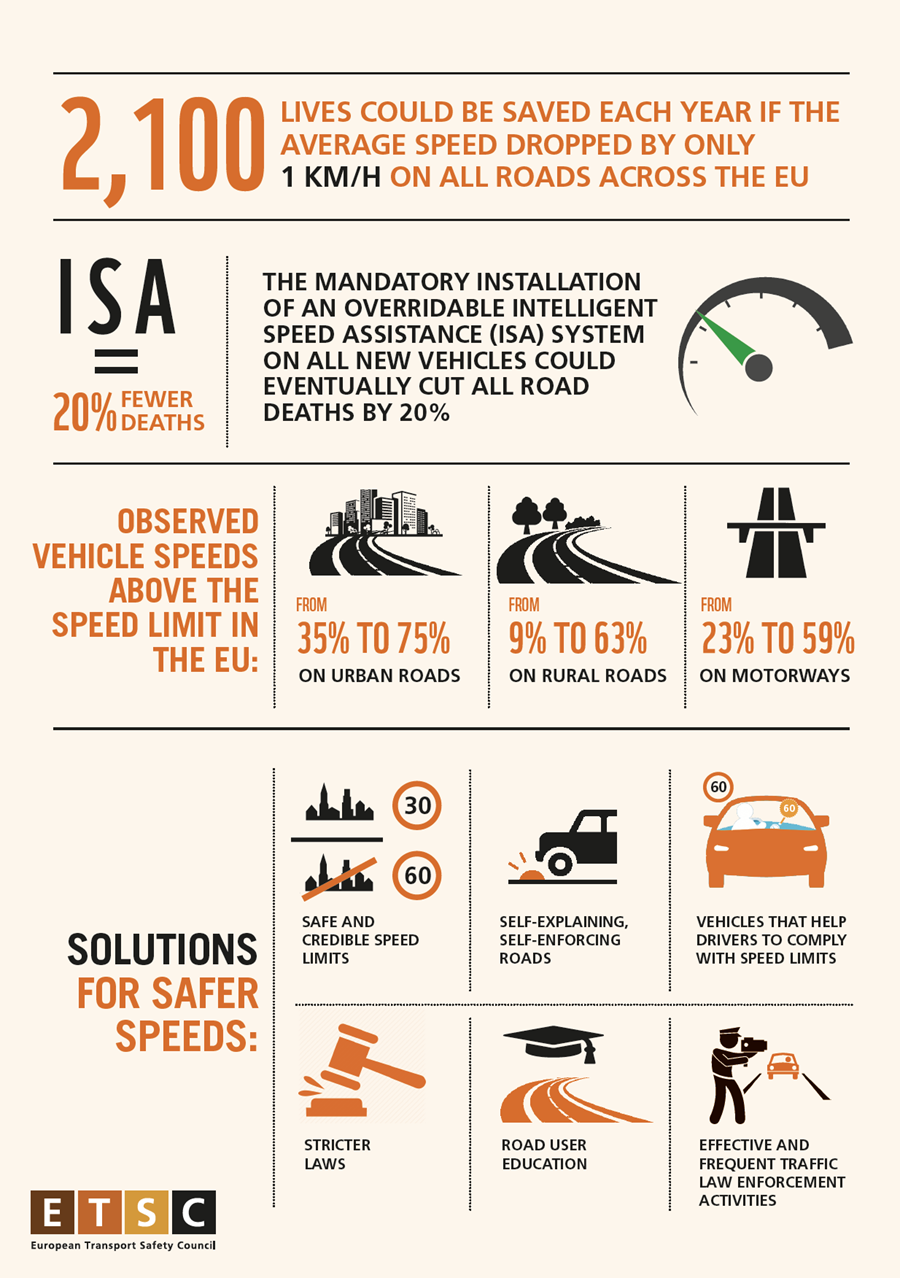
Offering advice, sharing good practice
at Moscow round-table meeting
at Moscow round-table meeting
We
were delighted to join a round-table event in Moscow on Monday and
Tuesday of last week. The round-table was organised by the World Health
Organization, bringing together senior traffic police officers from its
European region with the highest mortality rate for road traffic
injuries.
In the chair was its Regional Programme Manager for Violence and Injury Prevention Jonathon Passmore.

TISPOL
Presidente Colonel Paolo Cestra gave presentations on the value of
TISPOL's pan European operations, and on how strategic planning for
roads policing can contribute to overall government objectives for road
safety.
Major
Leandro Fuentes of TISPOL' Executive Committee explained the thinking
behind the TISPOL "Lifesaver" Project from 20098 to 2011, since which
Spain has been a leader in European road safety. He also presented the
Project EDWARD story.
Chief
Commissioner Koen Ricour of Belgium's Federal Highway Police (and a
former TISPOL President) gave a presentation on the Belgian model of
roads policing.
Watch a short video summary of the Moscow round table event:
Dates for your diary:
18 to 24 February: THIS WEEK TISPOL Truck and Bus Operation
9 - 11 April: TISPOL meetings and Project Edward launch, Prague
16 April: #Donttreamanddrive day
9 - 11 April: TISPOL meetings and Project Edward launch, Prague
16 April: #Donttreamanddrive day
Truck and bus enforcement operation all this week
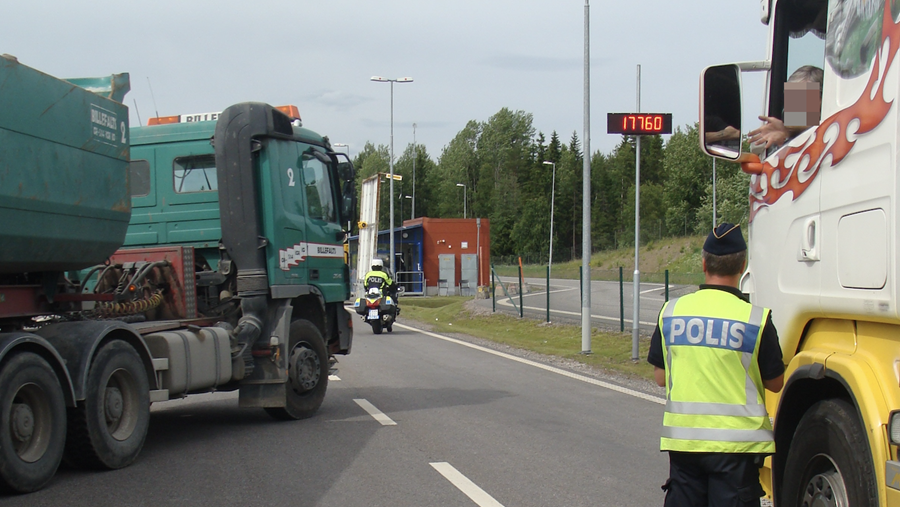
Until
this Sunday (24 February), on streets across Europe, checks of heavy
goods traffic and coaches will take place. It's anticipated that 27
TISPOL member countries will participate.
The focus will be on driving and resting hours as well as acceptasble technical condition of the vehicles.
During
the large-scale week of controls drivers will be checked with regard of
the Europe-wide social legislations (only those who are fit and well
rested will be able to take part safely on road
traffic).
Correct
loading, securing and equipment of coaches (such as emergency hammers
or properly functioning electric doors) will be controlled too, to
minimise the impact for anyone involved in a collision.
In
addition to the punishment of violations, drivers will also be
advised on the dangers of certain actions such as not wearing a
seatbelt. But also the increasing problem of distraction in traffic by
the prohibited use of mobile phones will be monitored and punished.
Germany: young police officer killed in collision with 'totally drunk driver'
On
Saturday morning a serious collision occurred in Saarbrücken involving a
police patrol car. The crew had been involved in the search for a
French car, which, according to witnesses, was driven by a "totally
drunk man" in the direction of the border crossing Saarbrücken-Schönbach
to France.
As
a result of the collision the co-driver, a 22-year-old police officer,
had to be rescued by the fire department from the emergency vehicle. She
suffered such serious injuries that she died at the scene. The driver
of the patrol car was seriously injured and is now in a Saarbrücken
hospital.
The
prosecution commissioned an expert to determine the precise course of
the accident. The French authorities are involved in the search for the
allegedly drunk French car driver.
This
news has left relatives, friends and colleagues stunned. Interior
Minister Bouillon and Secretary of State Seel expressed their deepest
sympathy. National Police chief Norbert Rupp was also shocked. He
participated in measures for the care of the colleagues of the
department concerned as well as the forces involved in the mission.
Everyone connected to TISPOL
sends their condolences; we are immensely proud of the sacrifice made by our colleague in her efforts to protect our streets.
Möge sie in Frieden ruhen.
Denmark: calls to lower age limit for riders of 'big mopeds'
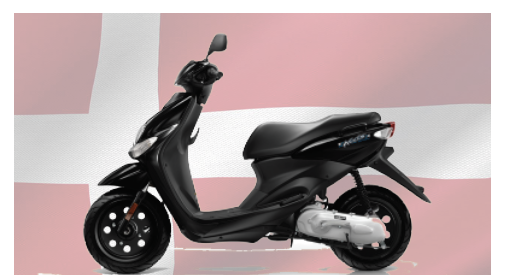
New
proposals have been put forward that would lower the age limit for
riders of mopeds reaching speeds of up to 45km/h. At present, there are
two different kinds of mopeds on Danish roads – the so-called ‘small
mopeds’ with a maximum speed of 30 km/h and ‘big mopeds’ that can reach
speeds of up to 45 km/h.
Anyone over 15 can ride the former but the latter are reserved for those with a driving licence, so over-18s.
Dansk Folkeparti (DF) is behind the proposal that would lower the age limit for ‘big
mopeds’ to 16, arguing that it would be good for increasing the mobility of young people, especially in remote parts of Denmark.
DF’s
transport spokesperson Kim Christiansen also argues that it will lead
to a drop in the number of ‘small moped’ owners who illegally tune their
bikes so that they can go faster.
However,
the Danish organisation for road safety Rådet for Sikker Trafik
criticised the proposal. “This involves putting the absolute most
vulnerable age-group on one of the most dangerous forms of transport you
can imagine – the ‘big moped’ – and this combination is a really lethal
cocktail,” said its chief Mogens Kjærgaard Møller.
“All
the research and experience from abroad shows that this is something
that leads to accidents and often accidents that prove fatal,” he added.
Italy: ban considered on smoking
in vehicles
in vehicles
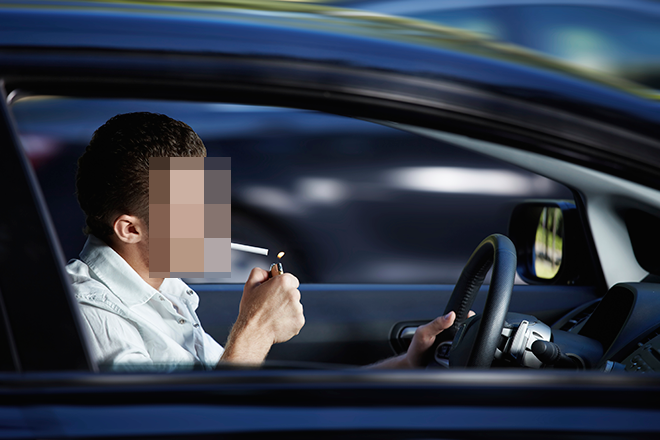
Experts in Italy are considering a ban on smoking in private cars.
However,
analysts are divided over the feasibility of a proposed reform to the
traffic codes designed to prevent people from smoking in their own cars.
Advocates say banning smoking in private vehicles would help avoid
health problems related to smoking, while also decreasing traffic risks
associated with drivers getting distracted while smoking.
"This
idea presents a new take on a very old problem, which is how to balance
the rights of an individual's freedom to make
personal choices and the desire to make changes that benefit the public
at large," Fabio Galli, an analyst on road and traffic issues with
consumer organization Codacons, told reporters.
However, Giordano
Bisemi, president of ASAPS, an entity promoting road safety, said there
were already good rules. "Drivers can't smoke in their car if they are
driving a pregnant woman, or if children under the age of 12 are
present," he said. "I'm not sure there's a value to going far beyond the
laws that exist today."
Spain: Scooter rider caught on camera going wrong way through
Barcelona tunnel
Barcelona tunnel
Click the image above to see the video...
A
dashcam video has captured the recklessness of an electric scooter
rider who rode in the opposite direction down Barcelona’s Gran Vía
tunnel on February 1. The city’s municipal police are reviewing the
footage to verify its authenticity. The video was filmed by someone
driving through the tunnel and has since gone viral on social media.
According
to municipal sources, the rider has not been reported. The police hope
that the video will help them identify the reckless driver, who
jeopardized both his safety and that of the other drivers in the tunnel.
France: improvement seen on road
safety figures
safety figures
An
improvement is being seen in French road safety figures. This positive
change comes after a reduction in speed limits on secondary roads from
90km/h to 80km/h. The speed limit reduction was introduced in July last
year and is estimated to have reduced the fatality rate by around 116.
During
2018, there were 3,259 road deaths in France, a drop of 5.5% from 2017.
Similarly, the number of people requiring hospital treatment following
road crashes dropped by 25%.
The
speed reduction has faced criticism from drivers and may be revised.
Cutting speeds on secondary roads has been considered vital for boosting
safety as many of these are two lane routes with one lane in either
direction with a greater risk of head-on collisions due to poor
overtaking or loss of control.
Portugal: police start intensive road safety campaign after deadly year for collisions
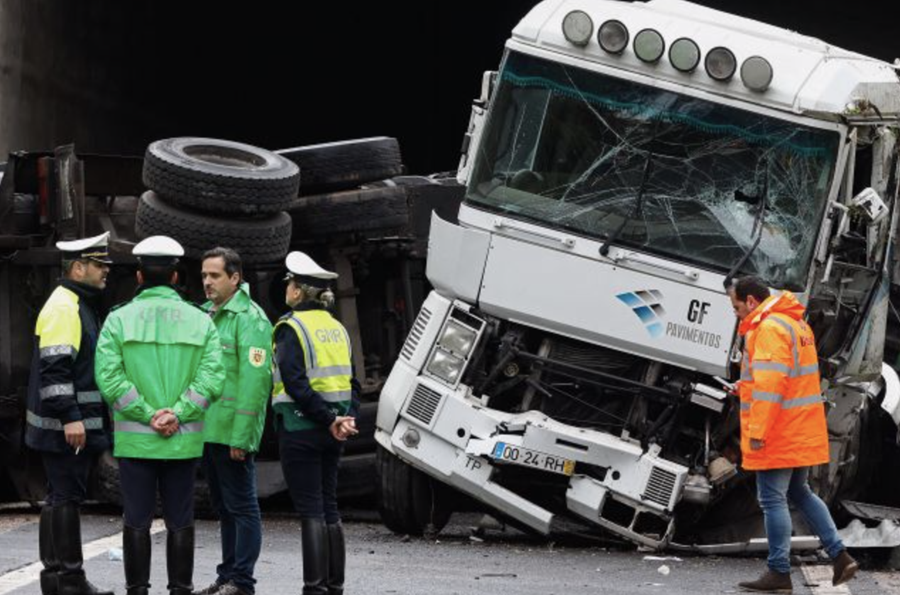
At the
end of January police started an extensive road safety campaign aimed
at reducing serious traffic collisions, in the wake of the higher number
of fatalities recorded during the course of 2018 on the country's
roads.
Operation
Estrada Segura or Safe Road, runs until the end of February, and will
seek to encourage drivers to practise defensive and safer driving.
Having
already increased on the year before in 2017, road deaths rose again
last year, making it the first time since 1996 that fatalities had risen
over two consecutive years.
Last
year, the European Union singled out Portugal in a report for failing
to follow the example of other member states in cutting back road
deaths.
A
report by the EU revealed that the number of deaths on Portuguese roads
rose 14 percent in 2017 compared to the previous year, which it said
was the second highest increase recorded in the EU, where the average
actually fell by two percent.



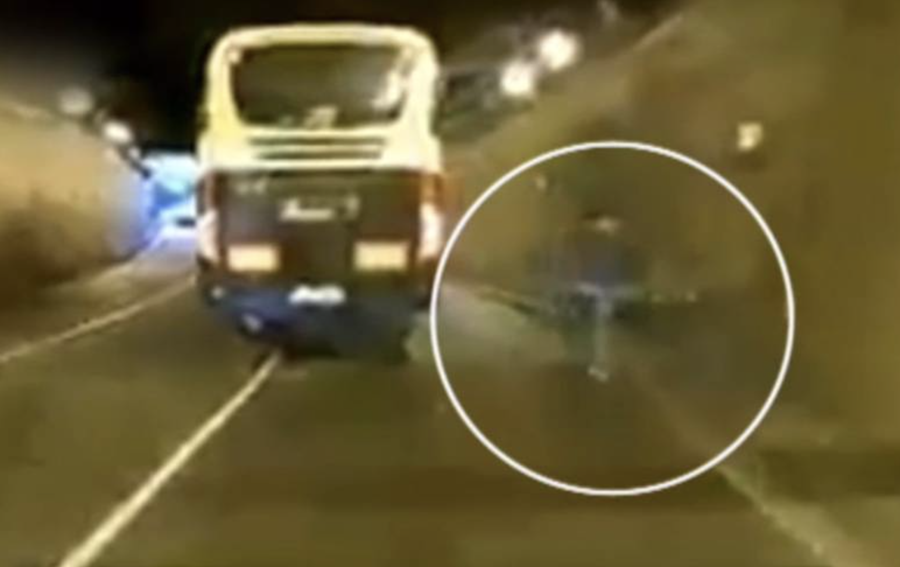


Δεν υπάρχουν σχόλια:
Δημοσίευση σχολίου